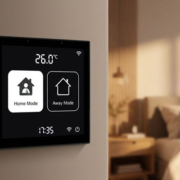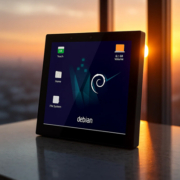What is the Best Linux Distribution for Home Automation?
Home automation systems have evolved from simple remote-controlled devices into complex, interconnected networks that control lighting, security, HVAC, entertainment, and even energy management. At the heart of these systems is the software platform that makes everything run smoothly — and for many enthusiasts and professionals, that platform runs on Linux.
Linux offers the flexibility, security, and stability needed to keep smart home systems operating reliably 24/7. But with so many Linux distributions available, which one is best for home automation? The answer depends on your hardware, skill level, and automation goals.
Why Use Linux for Home Automation?
Before we look at specific distributions, here’s why Linux is a top choice for powering home automation systems:
- Stability: Minimal downtime for mission-critical systems like security and climate control.
- Security: Open-source code and regular updates reduce vulnerabilities.
- Flexibility: Can run on anything from a Raspberry Pi to industrial-grade servers.
- Community Support: Large user base and active forums for troubleshooting.
Top Linux Distributions for Home Automation
1. Ubuntu Server
Best for: Beginners and users who want quick setup with strong community support.
Ubuntu Server is a highly popular choice for home automation servers because of its ease of installation, predictable release cycle, and abundant documentation. Whether you’re running Home Assistant, OpenHAB, or Node-RED, Ubuntu provides a solid foundation.
Pros:
- Large community and official support channels.
- Easy to install and update.
- Wide hardware compatibility.
Cons:
-
Slightly heavier than minimalist distributions.
2. Debian
Best for: Stability and long-term maintenance.
Debian is the parent distribution of Ubuntu, but it’s leaner and focuses on long-term stability over frequent updates. This makes it ideal for home automation setups that should “just work” without frequent intervention.
Pros:
- Extremely stable and secure.
- Minimal bloat — you install only what’s needed.
- Long-term support for each release.
Cons:
-
Not as beginner-friendly as Ubuntu.
3. Raspberry Pi OS
Best for: Low-power and budget-friendly smart home systems.
Raspberry Pi OS (formerly Raspbian) is designed for the Raspberry Pi — a favorite for DIY home automation projects. It’s lightweight and optimized for ARM processors, making it perfect for always-on devices.
Pros:
- Lightweight and efficient.
- Excellent for GPIO and direct sensor integration.
- Huge community support for Pi-based automation.
Cons:
-
Limited performance for large-scale setups.
4. Arch Linux
Best for: Advanced users who want complete control.
Arch Linux is for power users who want to build their home automation system from the ground up, installing only the necessary packages. Its rolling-release model means you always have the latest software, but it requires active maintenance.
Pros:
- Highly customizable.
- Always up to date.
- Minimal system resource usage.
Cons:
- Steep learning curve.
- Requires frequent updates.
5. Home Assistant OS (Linux-based)
Best for: Users who want a dedicated automation environment.
While not a general-purpose Linux distribution, Home Assistant OS is built on a lightweight Linux kernel and is tailored for running Home Assistant with Supervisor and add-ons. It’s perfect for those who want automation without Linux administration.
Pros:
- Ready-to-use with minimal configuration.
- Built-in backup and update management.
- Optimized for automation performance.
Cons:
-
Limited flexibility for running non-automation software.
At Portworld, we develop smart home touch control panels and embedded Linux systems that work seamlessly with popular automation platforms.
For most home automation projects, we recommend:
- Ubuntu Server if you’re new to Linux and want community-backed stability.
- Debian for professionals who value long-term reliability.
- Raspberry Pi OS for cost-effective DIY projects.
Our embedded Android/Linux control panels also integrate with Home Assistant, KNX, Zigbee, and RS485 protocols — allowing flexible automation across residential, commercial, and industrial environments.




